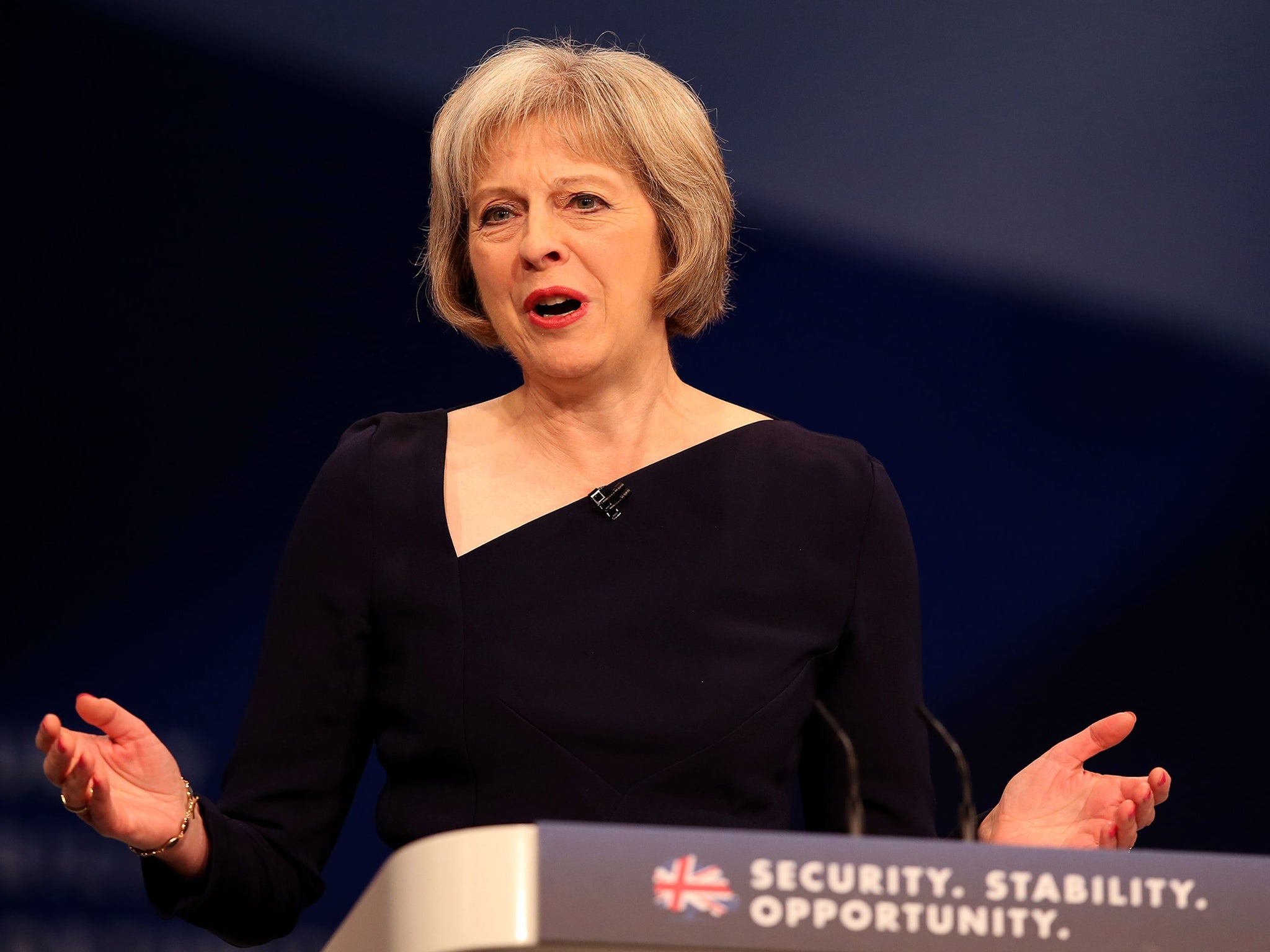Conservative party conference: Six ways Theresa May is wrong about immigration
The Home Secretary said immigration threatens social cohesion, forces down wages and pushes people out of work

Theresa May used her speech to the Conservative party conference to make a series of warnings about the impact of high levels of immigration.
It threatens social cohesion, she said; it forces down the wages of people already on low pay and pushes other people out of the workforce altogether.
The Home Secretary added that Britain does not need net migration in the hundreds of thousands; she insisted that under her watch the Government had proven it could control immigration and she claimed that the net impact of high levels of immigration to the economy and the public purse are “close to zero”.
Each and every one of these statements can be proven to be false, some with evidence from her very own department. Here are six of the claims she made today, followed by the evidence proving she is wrong:
1. Theresa May: “Because immigration is too high, when the pace of change is too fast, it’s impossible to build a cohesive society.”
But three years ago, in a report on the impacts of migration on social cohesion and integration for the body that advises the Government on immigration policy, the opposite case was very clearly stated:
“Our analysis indicates that it is principally socio-economic deprivation—not migration—that best explains peoples’ perceptions of their local area. However, existing diversity may partly explain differences in levels of cohesion. In other words, new migration does not notably affect cohesion but pre-existing diversity and high levels of poverty are predictors of lower social cohesion.”
2. Theresa May: “We know that for people in low-paid jobs, wages are forced down even further while some people are forced out of work altogether.”
Last year however, a Home Office report on the impact of migration on the UK labour market stated: “There is relatively little evidence that migration has caused statistically significant displacement of UK natives from the labour market in periods when the economy is strong.”
3. Theresa May: “Even if we could manage all the consequences of mass immigration, Britain does not need net migration in the hundreds of thousands every year.”
But in July last year the Government’s economic watchdog, the Office for Budget Responsibility (OBR), said a net 105,000 migrants were needed in the UK by 2016 to cope with an ageing population. This figure was revised down from the previous year’s estimate of 140,000.
This steady influx of immigration in the hundreds of thousands will be needed to increase the number of people in work and subsequently boost the nation’s public finances as the Government is forced to spend more on “age-related items such as pensions and healthcare”, the OBR said.
4. The same study demonstrated how immigration is essential in cutting Britain’s debt. With an on-going steady flow of immigrants into the UK, public government would rise to 99 per cent of GDP, the report said, but if Mrs May met her goal of setting a bar on the total number coming in, then borrowing would rocket up to 174 per cent of GDP.
5. Theresa May: “The evidence – from the OECD, the House of Lords Economic Affairs Committee and many academics – shows that while there are benefits of selective and controlled immigration, at best the net economic and fiscal effect of high immigration is close to zero.”
Britain has no control over how many migrants come to the UK from the rest of the EU so they can certainly not be classed as “selective”.
And last year a detailed study of the impact of immigrants from the 10 countries that joined the EU in 2004 found that they contributed £4.96bn more in taxes in the years to 2011 than they took out in public services.
6. Theresa May: “Neither is it true that, in the modern world, immigration is no longer possible to control. The experience of the last five years is that where the Government has the political will to reduce immigration, it can do so.”
When Mrs May was appointed Home Secretary in 2010, net migration stood at 252,000. It did fall to 154,000 in 2012 but since then it has rocketed and in the first quarter of 2015 it reached a 10-year high of 318,000.
These figures cast doubt on both Mrs May’s statements – neither does the UK have control of immigration to the UK as long as it remains in the EU and neither does the last five years demonstrate that the Government “has the political will to reduce immigration”.
Subscribe to Independent Premium to bookmark this article
Want to bookmark your favourite articles and stories to read or reference later? Start your Independent Premium subscription today.

Join our commenting forum
Join thought-provoking conversations, follow other Independent readers and see their replies